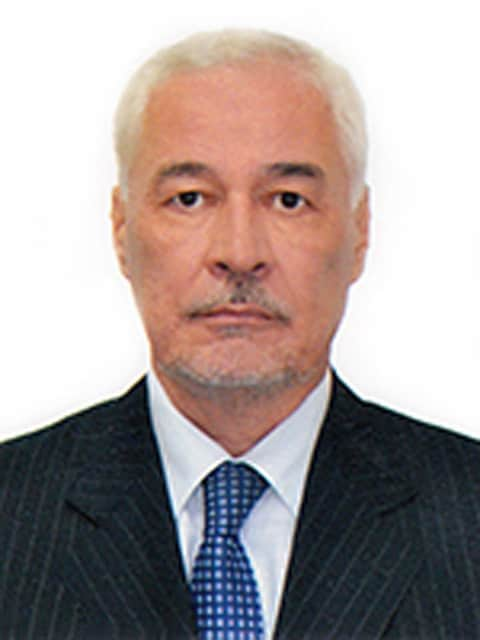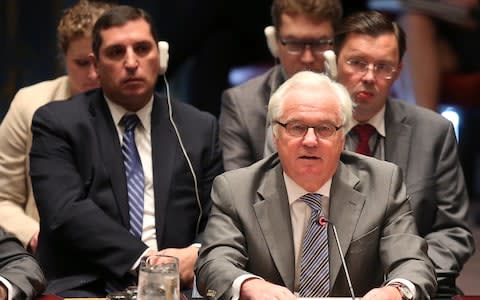Ambassador to Sudan becomes eighth Russian diplomat to die suddenly in 10 months

Russia's ambassador to Sudan has reportedly died of a heart attack, becoming the eighth Russian diplomat to pass away unexpectedly in the past 10 months.
Mirgayas Shirinsky, 62, was found dead on Wednesday at his Khartoum residence.
Maria Zakharova, Russian foreign ministry spokeswoman, told journalists on Thursday that the ambassador had been “found with signs of an acute heart attack”.
“Embassy employees called a doctor, but unfortunately he was unable to save (Mr) Shirinsky,” she said.
Police told AFP he had “died while he was swimming in his pool at his house” but that an initial investigation had ruled out foul play. Mr Shirinsky is at least the eighth foreign ministry official to die since late last year.

The spate of deaths began on the day Donald Trump was elected US president in November, when Sergei Krivov, duty commander of the Russian consulate in New York, was found dead with a head wound at the facility, police said.
Initial reports said he had fallen to his death from the roof, but consulate officials said he had a heart attack and hit his head. The New York city medical examiner later contradicted these explanations, saying he died of internal bleeding related to a tumour.
Andrei Karlov, ambassador to Turkey, was shot in the back during his speech at an Ankara art gallery in December by a police officer yelling “Don't forget Syria”.
Vitaly Churkin, ambassador to the United Nations, died at work in Februarythe day before his 65th birthday, reportedly of a heart attack. More than 10,000 people work at the Russian foreign ministry in Moscow and abroad, and five of the men were in their sixties, old by Russian standards.

Alexander Kadakin, ambassador to India, was 67 when he died in a hospital in January, one year over the average life expectancy for Russian males. But the recent deaths, at least three of which occurred in unclear circumstances, have raised eyebrows, especially since high-profile Russians have been killed abroad before.
A UK inquiry found in 2016 that spy-turned-MI6-informant Alexander Litvinenko had been poisoned by two Russians acting on the Kremlin's orders.
In addition, some US intelligence and law enforcement officials reportedly now believe Mikhail Lesin, former communications minister and aide to Vladimir Putin, was murdered on the eve of an interview with the department of justice in 2015.

Nikolai Platoshkin, docent of the Moscow University for the Humanities and a former foreign ministry employee who knew Mr Shirinsky, denied that the recent series of deaths was suspicious.
He said his former colleague's postings in Sudan, Yemen, Saudi Arabia and Rwanda could have affected his health.
“Ambassadors' retirement age has increased. In Soviet times it was 60 … now it's 65, so among our ambassadors there are aging people working in stressful conditions and bad climates,” Mr Platoshkin said.
But two of the foreign ministry employees died violently.
Pyotr Polshikov, 56, head advisor of the foreign ministry's Latin American department, was found dead of a gunshot to the head in his flat in Moscow in December.
Mr Polshikov's wife was reportedly also in the flat, and police found a pistol and shells.
In a terse statement, the foreign ministry said the incident was likely an “accident not connected with the deceased's work activities”, but some Russian media speculated it could have been a murder.
Another foreign ministry employee killed a woman and her daughter with a hunting rifle before committing suicide in Moscow in May.
Russian media later reported he was Alexander Shilin, 43, deputy head of the foreign ministry's department of cooperation with the Asian and Pacific region, and the victims were his wife and five-year-old daughter.
Andrei Malanin, 55, head of consular section at the embassy in Greece, was found dead on his bedroom floor on 9 January. Police said the cause was likely illness, but nonetheless opened an inquiry into his death.

